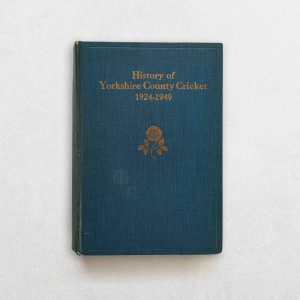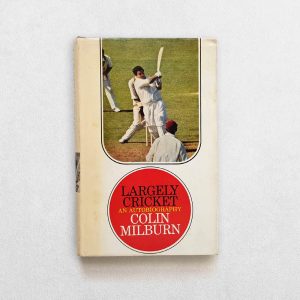The Parish Register Of Masham 1599-1716
Edited by David M Smith
£23.00
Availability: In stock
Product Description
The Parish Register Of Masham 1599-1716
Author: Edited by David M Smith
Price: £23
Publisher: The Yorkshire Archaeological Society
Edition: 1st edition
Publication Date: 1991
Format: Original wrappers
Condition: Very good
Description: Octavo. Original printed wrappers. pp. 404. Spine a little creased. Neat ink name to front wrapper. A very good copy. Location: OSR 002818
Masham Through The Ages
Nestled on the banks of the River Ure in Wensleydale, Masham (pronounced “Massam”) is a small yet historically significant market town in North Yorkshire. Known today for its rural charm, fine ale, and thriving arts scene, Masham’s story stretches back over a thousand years, with roots in Anglo-Saxon England and even earlier.
Early History and Origins
The area around Masham has been inhabited since prehistoric times, as evidenced by Neolithic and Bronze Age finds in the region. The name “Masham” is thought to derive from the Old English Maessa’s Ham, meaning “Maessa’s homestead” or settlement.
By the time of the Domesday Book in 1086, Masham was already a recognised settlement. It was recorded as part of the vast estates of Count Alan of Brittany, one of William the Conqueror’s key supporters. The Domesday entry mentions a church, a mill, and valuable woodland — all signs of an established and economically active community.
Medieval Masham
In the 12th century, Masham grew in prominence under the patronage of the Lords of Richmond, who granted the town a market charter — a crucial development that established Masham as a local centre for trade and commerce. The town’s market tradition dates back to at least 1250, and the market square, still one of the largest in Yorkshire, became a focal point for rural life in lower Wensleydale.
The local economy was historically based on agriculture, sheep farming, and wool production, with Masham benefiting from its position at the edge of the Yorkshire Dales. The importance of sheep to the town is still commemorated today with the annual Masham Sheep Fair, a popular event that draws on this deep-rooted tradition.
The Church and Ecclesiastical Life
St Mary’s Church, the parish church of Masham, has a history stretching back to at least the 7th century. The current building dates largely from the 12th to 15th centuries, though it stands on the site of an earlier Saxon structure. The church contains a fascinating collection of Saxon crosses, tombs, and carvings, reflecting Masham’s long religious heritage.
18th and 19th Centuries: Brewing and Industry
In the 18th and 19th centuries, Masham remained a prosperous market town. The local brewing industry began to flourish during this period, fuelled by the quality of the local water and the availability of barley from surrounding farms. This set the stage for what would become one of Masham’s most enduring claims to fame.
The town was also linked to textile production and small-scale manufacturing, although it largely escaped the heavy industrialisation that transformed parts of West Yorkshire.
20th Century to Present Day: Ales and Arts
Masham’s reputation as a brewing town was cemented in the 20th century with the founding of two family-run breweries: Theakston Brewery (established in 1827) and Black Sheep Brewery, founded in 1992 by Paul Theakston, who broke away from the family firm following a corporate takeover. Today, both breweries are major attractions and export their ales across the country and beyond.
Despite its modest size, Masham has a thriving arts and crafts scene, with local galleries, studios, and an annual arts festival. Its attractive setting, with proximity to the Yorkshire Dales National Park, draws walkers, cyclists, and holidaymakers year-round.
The town has retained its sense of identity and independence, resisting overdevelopment while embracing tourism and local enterprise. Traditional butchers, grocers, cafes, and craft shops cluster around the expansive cobbled square, which remains the beating heart of the community.
Legacy and Character
Today, Masham stands as a proud example of a historic Yorkshire market town that has evolved without losing sight of its roots. With its Norman church, ancient sheep fair, independent breweries, and artistic vibrancy, Masham represents a deeply woven blend of the old and the new — a rural place with a strong sense of place, history, and community.
Why buy from us?
At Hornseys, we are committed to offering items that meet the highest standards of quality and authenticity. Our book collection is meticulously curated to ensure that each edition is a valuable and authentic piece of bibliographical history. Here’s what sets us apart:
- Authenticity and Provenance: Every book is researched, collated, and verified for authenticity.
- Expert Curation: Each book is selected with a keen eye for significance, condition, and rarity, ensuring a collection that is both diverse and distinguished.
- Customer Satisfaction: We strive to provide an exceptional customer experience, from detailed descriptions and provenance to secure and prompt delivery of your purchase.
- Returns Policy: We offer an unconditional guarantee on every item. If you wish to make a return, books may be sent back to us within fourteen days of receipt for any reason. We request advance notification of returns, and books must be returned in the same condition as sent for a full refund.
Explore Our Collection:
Visit Hornseys to explore our fine collection of rare and signed books. Whether you are an avid collector or looking for a special gift, our selection offers something truly unique. Located in the picturesque Yorkshire Dales, our Ripon gallery has been a haven for book lovers, art enthusiasts, and collectors since 1976.
Related products
A Ripon Record 1887-1986 Signed By All Four Editors
£60.00Edited by Edna Ellis, Mary Mauchline, Ted Pearson & John Whitehead
Annual Report And List Of Members 1893-1898: An Unbroken Run Of The First Six Reports. Copy Of The Original Vice-President.
£295.00Yorkshire Ramblers’ Club
You may also like…
Ordnance Survey Folding Map Of Leicester And District – Special Sheet Popular Edition One Inch Map
£35.00The Ordnance Survey
Signed Official Programme: A Souvenir Of The Visit Of E. W. Swanton’s Commonwealth Cricket Team To Hong Kong March 31 To April 7, 1964
£325.00Printed by The South China Morning Post Ltd, Hong Kong











